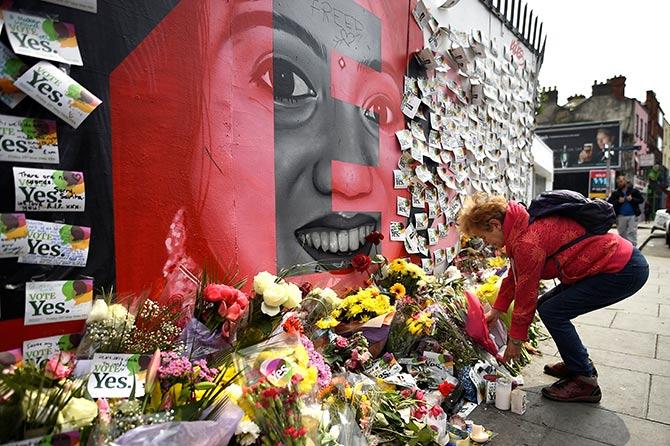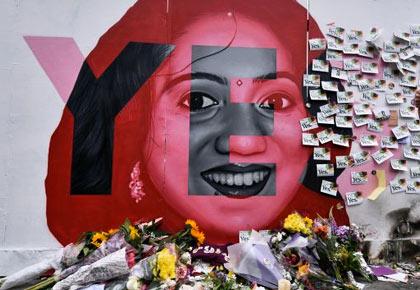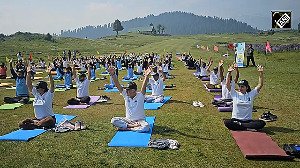'It is as if once a woman conceives, she immediately relinquishes the right to take decisions regarding her body; her entire identity must now be subsumed into her role as an engine of reproduction and society must do all it can to keep her strapped to that role,' says Shuma Raha.

They broke into wild cheers. They shed tears of joy. And they chanted 'Savita, Savita, Savita!' in memory of Savita Halappanavar, the 31-year-old Indian woman who died of a septic miscarriage in an Irish hospital in 2012 after doctors refused to perform an abortion on her in deference to the country's laws.
On May 26, thousands of women turned out on the streets of Dublin to celebrate a historic referendum overturning Ireland's ban on abortion.
And no matter where you lived, if you were a woman, the sight of it made you emotional because this was a spectacular victory, a magical and uplifting moment when another long battle to give women their human rights had been won.
For years, Ireland's Eighth Amendment to its constitution (passed in 1983 even though abortion was already illegal in that country) denied women the right to reproductive choice, forcing them to have unwanted babies or travel to another country to terminate a pregnancy.
Now, that colossal injustice was finally and resoundingly thrown out.
As they rejoiced, Irish women paid homage to Savita Halappanavar who had become the movement's muse after her tragic death.
One of the messages pinned before her mural in Dublin read: 'Dear Savita, sorry it took your death for us to make this happen. We'll never forget you.'
It is indeed remarkable that it took a developed nation like Ireland this long to come out on the side of women and their right to choose.
Of course, the country is hardly the last bastion of anti-abortionists.
Abortion continues to be severely restricted in the UK's Northern Ireland, which, like Ireland, is another place where the anti-abortionist Catholic Church is an influential voice.
And there are many countries around the world such as the United Arab Emirates, Bangladesh, Philippines, Honduras and so on, where abortion is outlawed.
In some of them, morning-after pills are banned too.
Even in the US, where the landmark Roe v Wade judgment of 1973 affirmed women's right to abortion, the backlash against choice is chilling.
Abortion clinics are often firebombed and there has been a systematic effort by conservatives to take away funding from organisations which work in the field of reproductive rights.
In fact, the US administration announced in May that it will stop federal funding of health clinics that provide abortions or abortion referrals -- a move that will surely hurt legions of American women.
Those who campaign against abortions say they speak for the unborn child, the foetus whose right to life is as important as anyone else's.
Perhaps they believe this doctrine. But the subtext of their belief hews uncomfortably close to patriarchy's age-old impulse to control women's bodies.
Be it through religion, society or family diktats, women have always been made to believe that their bodies are not their own and that they exist in the service of others.
Denying women the freedom to terminate a pregnancy smacks of the same unholy desire to deny them any kind of agency.
It is as if once a woman conceives, she immediately relinquishes the right to take decisions regarding her body; her entire identity must now be subsumed into her role as an engine of reproduction and society must do all it can to keep her strapped to that role.
The sheer medievalism of this attitude is stunning.
The victory in Ireland will no doubt inspire women to push back against social and political pressure to give up their reproductive rights.
Women have a right to safe and legal abortion services just as they have a right to contraception, pregnancy and maternal health care and affordable child care.
In India, for example, though abortion has been legal since 1971, unsafe abortions are one of the biggest causes of pregnancy-related deaths.
The freedom to decide when -- and if -- we want to have a baby is non-negotiable.
As Ireland has shown, sooner or later, regressive, anti-women regimes have to come to terms with that.













